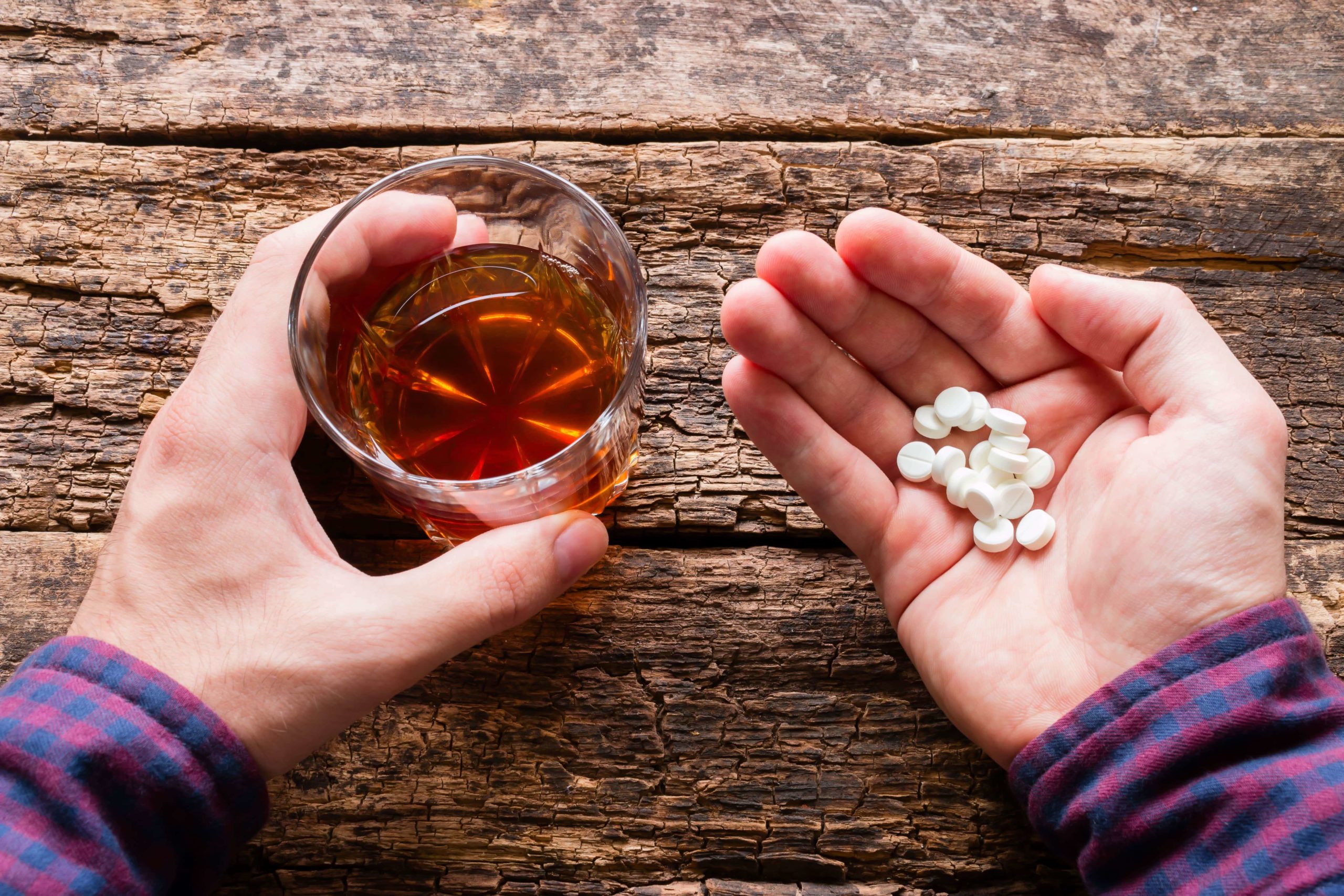Many people drink alcohol after taking a drug in order to enhance the substance’s effects but doing so can be incredibly dangerous. Combining alcohol with benzodiazepines is particularly risky because both substances slow activity in the central nervous system which can cause difficulty breathing, blackouts, coma, and an increased risk of overdose. Here’s what you should know about the two substances and what can happen when they’re consumed together.
The Effects of Benzodiazepines
Benzodiazepines are medications used to treat anxiety disorders, nervousness, seizures, muscle spasms, and sleep issues. Benzodiazepines also called “benzos,” act as a sedative by increasing and mimicking the effect of GABA, a brain chemical that reduces activity in the central nervous system, evoking a drowsy, calm, and relaxed feeling. Unfortunately, these medicines, which include Valium, Xanax, Halcion, Ativan, and Klonopin, can be habit-forming, which can, in turn, lead to dependence, abuse, and addiction. When combined with alcohol, benzodiazepines can become even more dangerous.
The Dangers of Mixing Alcohol with Benzos
Both alcohol and benzodiazepines can harm the body, but the damage increases when the two substances are combined. As depressants, both alcohol and benzodiazepines diminish activity in the central system. When taken together, the substances greatly diminish users’ nervous system activity, which can cause a number of harmful side effects, including:
- Slowed, labored, breathing
- Weakened immune system
- Unconsciousness
- Organ failure
- Coma
Mixing alcohol with benzodiazepines can also cause:
- Cognitive Impairments. Individuals who mix alcohol and benzos typically experience a significant reduction in their cognitive functioning. With the activity in the central nervous system slowed down, cognitive functions like thinking, reasoning, and controlling emotions can become impaired. Large quantities of alcohol and benzodiazepines can slow the flow of oxygen so much that individuals faint or blackout.
- Long-term Physical Conditions. Consuming alcohol with benzodiazepines can seriously weaken individuals’ immune systems. This makes users more likely to experience physical health conditions such as liver and kidney damage. Cardiovascular and gastrointestinal issues are also commonly associated with alcohol and benzodiazepine use. Prolonged alcohol and benzodiazepine use can cause neurological issues that can potentially lead to dementia.
- Mental Health Disorders. Researchers have discovered that combining alcohol and benzodiazepines can increase users’ risk of developing mental health disorders. The enhanced effects, combined with diminished activity in the nervous system, can lead to depression, bipolar disorder, anxiety disorders, psychosis, and trauma and stress-related disorders. Suicidal thoughts are often common side effects of poly-drug and multi-depressant use.
- Overdose. Mixing two central nervous system depressants increases your overdose risk for one or both substances. The presence of benzodiazepines reduces the amount of alcohol that can lead to an overdose. Similarly, consuming alcohol reduces the dosage of benzodiazepines that can cause an overdose. In addition to that, the body metabolizes alcohol faster than any other addictive substance. This means benzodiazepines remain in individuals’ systems longer when users take the two substances together, increasing the likelihood of adverse effects and overdose.
Treatment from a Group That Cares About Your Recovery
Here at Soba Recovery, we care about your health. Our wide range of services can provide you with a unique recovery experience tailored to meet your specific needs. You don’t have to continue using alcohol and prescription medications as a way to cope with life’s challenges. We can help you recover. Let us help you get there. Contact us today to learn more about our recovery process and treatment programs.



